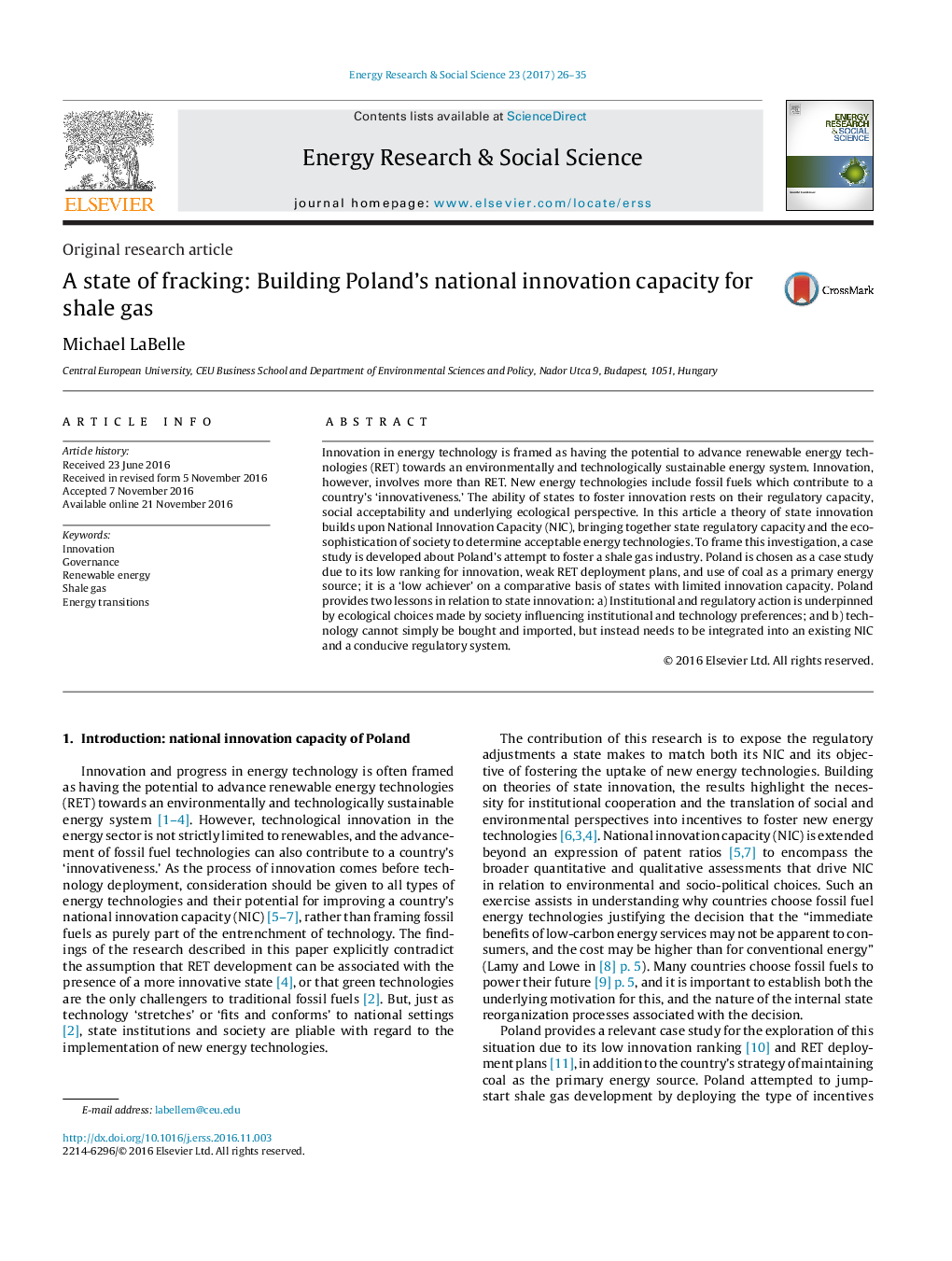| Article ID | Journal | Published Year | Pages | File Type |
|---|---|---|---|---|
| 6464093 | Energy Research & Social Science | 2017 | 10 Pages |
Innovation in energy technology is framed as having the potential to advance renewable energy technologies (RET) towards an environmentally and technologically sustainable energy system. Innovation, however, involves more than RET. New energy technologies include fossil fuels which contribute to a country's 'innovativeness.' The ability of states to foster innovation rests on their regulatory capacity, social acceptability and underlying ecological perspective. In this article a theory of state innovation builds upon National Innovation Capacity (NIC), bringing together state regulatory capacity and the eco-sophistication of society to determine acceptable energy technologies. To frame this investigation, a case study is developed about Poland's attempt to foster a shale gas industry. Poland is chosen as a case study due to its low ranking for innovation, weak RET deployment plans, and use of coal as a primary energy source; it is a 'low achiever' on a comparative basis of states with limited innovation capacity. Poland provides two lessons in relation to state innovation: a) Institutional and regulatory action is underpinned by ecological choices made by society influencing institutional and technology preferences; and b) technology cannot simply be bought and imported, but instead needs to be integrated into an existing NIC and a conducive regulatory system.
